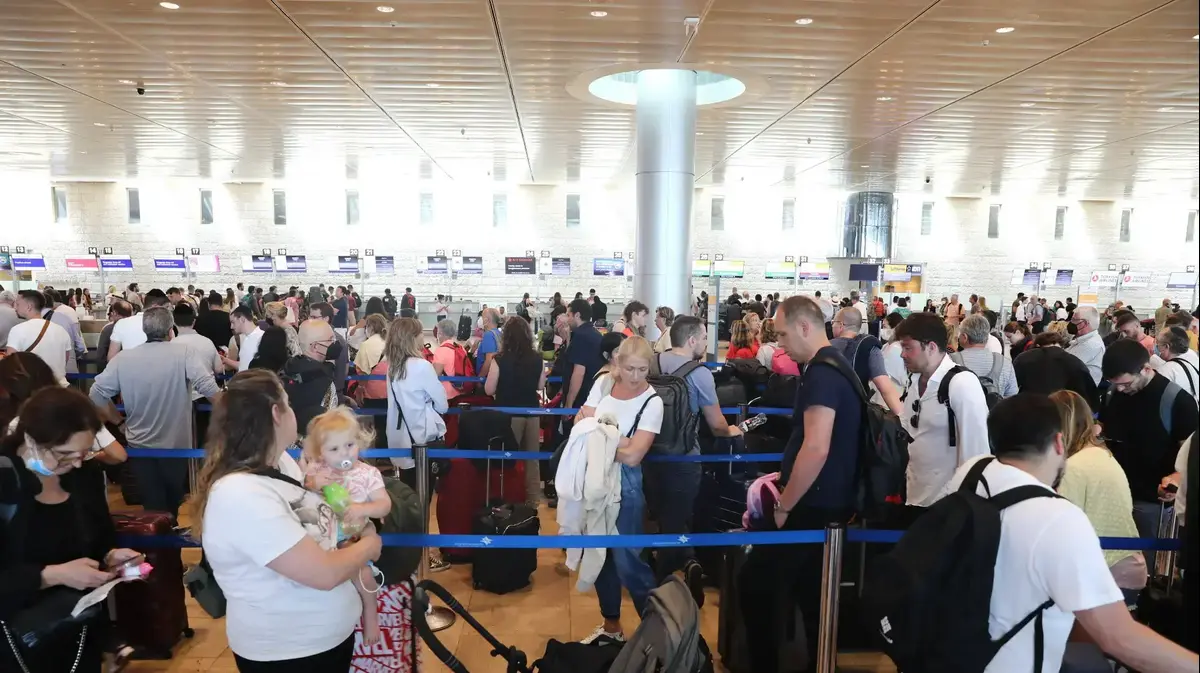How much will you spend on vacation during the holidays?
You planned much better
Even during the coming holiday season, Israelis will be visiting en masse.
How many will do this in Israel, how many abroad, what are the preferred destinations and how much will the pleasure cost? A survey by the Geocartography Institute brings up a number of interesting findings. The main one: add tens of percent to your calculation
David Rosenthal
13/09/2022
Tuesday, September 13, 2022, 12:14 AM
Share on Facebook
Share on WhatsApp
Share on Twitter
Share by email
Share in general
Comments
Comments
On video: Queues and congestion in the National Bank of Israel, just before the holiday: "Severe shortage of workers" (Photo: Niv Aharonson)
The holidays are coming and Israel is on standby. As every year, hundreds of thousands of Israelis will find themselves on the way to Lod or will travel around the country to find a suitable hotel or B&B. What is their budget and will they meet it? A survey by the Geocartography Institute brings us several data.
The "fine": 22 percent
Israelis like to go on vacation during the holidays.
Nearly 42 percent of the survey participants said that they would vacation in Israel and about 34 percent stated that they would do so in another country.
The average between the flights abroad will be a week, with about 10 percent going on a longer vacation and 45 percent on a vacation of up to five days. In Israel, the average vacation will be a little more than four days.
The planned travel budget of the flights abroad for a family of four It stands at about 11 thousand shekels, a little less than $1,000 per person.
However, according to a survey by the Geocartography Institute, the planned expenditure increased by 22 percent per capita, due to excessive shopping, hotel upgrades, tickets to attractions, restaurants, and more.
In other words, a family that planned a trip of NIS 11,000 is expected to pay about NIS 13,500.
Open your pocket (Photo: ShutterStock)
Most vacationers (29 percent) will be couples, followed by groups of three and four people (about 18 percent each) and five people (about 11 percent).
The next group in line is the one with eight or more people - 9 percent of all vacationers.
The broadest expectation for the cost of vacationing in Israel is NIS 2,500 to 5,000 - about a third of those expected to vacation thought this would be the amount they would pay.
The most common amount budgeted for vacationers abroad is NIS 5,000-10,000, with 27 percent of Israelis expecting to spend less than NIS 5,000 and only 18 percent believing that they will spend over 100,000 shekels on the upcoming trip.
Does this align with the goals popular among Israelis? 17 percent of vacationers intend to go to Greece and Ayia, a relatively cheap destination, followed by about 10 percent to Italy, 6 percent to the USA and Georgia.
A somewhat surprising statistic points to Cyprus being close - only 1.7 percent of Israelis intend to visit it.
Oh my Kinneret
And in Israel?
Most Israelis will move north - 42 percent will settle in the Sea of Galilee, the Galilee and the Golan and 18 percent will go to Eilat.
Only about 4 percent will stay in the Tel Aviv area and about 10 percent have not yet decided where they will go.
This, compared to about 8 percent who are undecided about their destination abroad.
Of money
consumption
Tags
recreation
holidays











